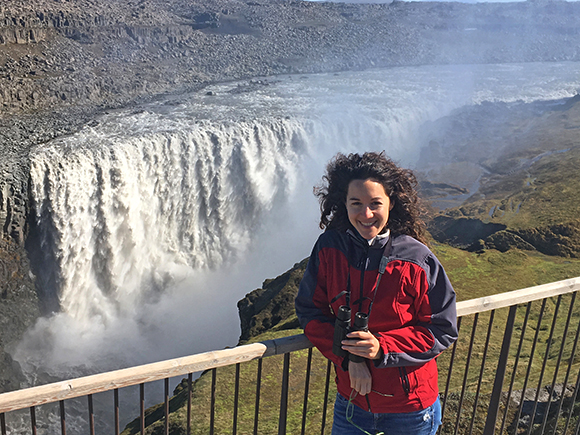Carbon
Imbalance-P places nutrient imbalance on the world agenda
The world is leading towards more accurate climate modelling, more equitable policymaking, and more sustainable food production thanks to the Imbalance-P project, with Josep Peñuelas, Michael Obersteiner, Ivan Janssens and Philippe Ciais.
“A temperature rise of 2ºC could have irreversible effects on the planet”
We interviewed Sara Marañón, a postdoctoral researcher at CREAF with a Marie Curie grant.

Catalonia's agricultural soils contain four years' worth of carbon emissions
The soils below dryland crops contain 54% of Catalan agricultural land's 48 million tons of organic carbon, although the highest concentrations are found in rice fields and pastures.
It’s already available CREAF Talk by Scott Ollinger about nitrogen and carbon assimilation in forests
A new video of CREAF Talks conferences is now available. Scott Ollinger, from University of New Hampshire, USA, talks about basic relations among foliar N and CO2 assimilation in forests, relationships between N concentrations and a suite of functionally convergent plant traits that influence canopy reflectance, and implications for broad-scale N mapping and ecosystem—climate interactions.
Thirsty holm oaks lose 21% more carbon through their roots
Once rehydrated, holm oaks have a large capacity for recovery thanks to their high adaptation to the Mediterranean climate. The release of organic compounds into the soil represents a considerable loss of carbon for the holm oak and also modifies the microbial community, which may lead to additional effects on the tree.
Fossil fuel emissions hit record high after unexpected growth: Global Carbon Budget 2017
The Global Carbon Budget 2017 has analyzed carbon emission sources and sinks worldwide. This year the researcher Benjamin Stocker from CREAF has collaborated in the report contributing and preparing data about how the change in the use we give to the territory has affected CO₂ emissions.
"We invest much more time writing scientific publications than making science accessible"
Rossella Guerrieri has a PhD in Forestry and Environmental Sciences and has been a post-doc at CREAF since 2016. Her projects are related to the natural cycles of forests and she is a strong advocate of the social impacts of science.
The greening of the earth is reaching its limit
A new study led by Josep Peñuelas and published in Nature Ecology and Evolution reveals that CO2 abundance in the atmosphere no longer has a powerful fertilizing effect on vegetation. The greening that has been observed in recent years is slowing and this will cause CO2 levels in the atmosphere to rise, thus increasing temperatures and leading to increasingly severe changes in climate.
Achieving the COP21 agreements is currently far-fetched
The COP21 set the maximum temperature increase for 2100 at 1.5° C. The only scenario which would allow achievement of this goal would require vastly reducing human CO2 emissions, significantly increasing the prominence of renewable energies, and the use of some type of artificial carbon sequestration technology.

